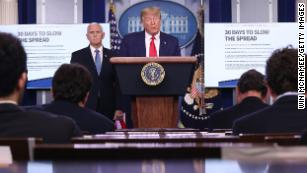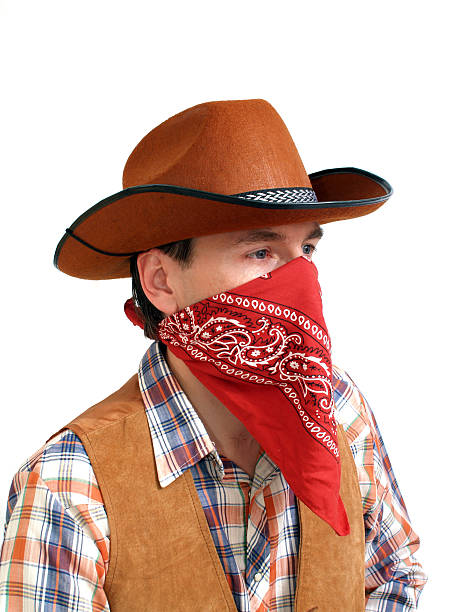- Joined
- Feb 26, 2019
- Messages
- 12,449
- Points
- 113
Trump says new recommendations on face masks are coming
cnn.com
"In many ways, a scarf is better. It's thicker," he said.
Trump did not offer timing on the new recommendations, but people familiar with the matter said the administration was working Thursday to complete the guidance, which would advise Americans to use a face covering when leaving their homes.
Vice President Mike Pence said the task force was still weighing recommendations from the Centers for Disease Control and Prevention and would issue recommendations in the next several days.
CNN reported on Wednesday that most members of the task force have come to agree that Americans should begin wearing face coverings in public and could issue formal guidance on the matter soon.
Some members of the task force -- including Dr. Deborah Birx -- have cautioned in meetings against recommending Americans wear masks because of a fear it could lull them into a false sense of protection and prevent them from socially distancing. But new insights into asymptomatic spread of the virus have led to a reconsideration of the guidance.
Speaking at the briefing on Thursday, Birx said White House officials were still debating new recommendations.
"It is not a substitute for the presidential guidelines (on social distancing) that have already gone out," she said. "Don't get a false sense of security that that mask is protecting you exclusively from getting infected."
"This worries us," she added. "That's why the debate is continuing about the mask."
Among the issues discussed by the task force and the CDC have been how to teach Americans to wear masks and how to prevent a rush on medical-grade equipment, such as N95 respirators, still in short supply for hospitals.
There have also been discussions of the cultural shift that recommending masks would represent, since Americans (unlike citizens of some Asian countries) are not accustomed to wearing masks in public.
And there has been some consideration of whether or not to call the recommended face coverings "masks." Some have suggested referring to them simply as "face coverings" or "courtesy masks" to distinguish them from the medical masks needed by professionals.
cnn.com
"In many ways, a scarf is better. It's thicker," he said.
Trump did not offer timing on the new recommendations, but people familiar with the matter said the administration was working Thursday to complete the guidance, which would advise Americans to use a face covering when leaving their homes.
Vice President Mike Pence said the task force was still weighing recommendations from the Centers for Disease Control and Prevention and would issue recommendations in the next several days.
CNN reported on Wednesday that most members of the task force have come to agree that Americans should begin wearing face coverings in public and could issue formal guidance on the matter soon.
Some members of the task force -- including Dr. Deborah Birx -- have cautioned in meetings against recommending Americans wear masks because of a fear it could lull them into a false sense of protection and prevent them from socially distancing. But new insights into asymptomatic spread of the virus have led to a reconsideration of the guidance.
Speaking at the briefing on Thursday, Birx said White House officials were still debating new recommendations.
"It is not a substitute for the presidential guidelines (on social distancing) that have already gone out," she said. "Don't get a false sense of security that that mask is protecting you exclusively from getting infected."
"This worries us," she added. "That's why the debate is continuing about the mask."
Among the issues discussed by the task force and the CDC have been how to teach Americans to wear masks and how to prevent a rush on medical-grade equipment, such as N95 respirators, still in short supply for hospitals.
There have also been discussions of the cultural shift that recommending masks would represent, since Americans (unlike citizens of some Asian countries) are not accustomed to wearing masks in public.
And there has been some consideration of whether or not to call the recommended face coverings "masks." Some have suggested referring to them simply as "face coverings" or "courtesy masks" to distinguish them from the medical masks needed by professionals.




